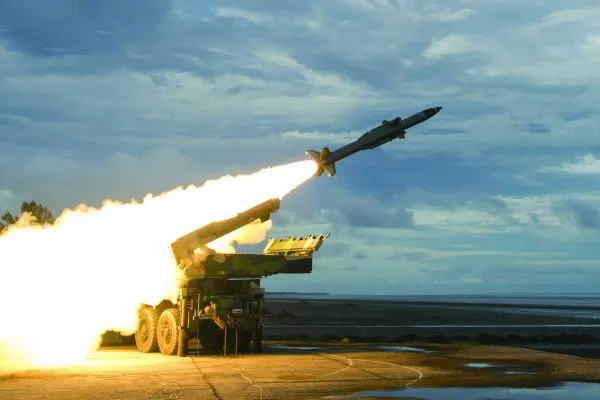The Gulf of Aden, a crucial waterway linking the Mediterranean Sea to the Indian Ocean, has long been a strategic hotspot for international trade. However, in recent years, it has become a scene of escalating tensions and violence, particularly due to the actions of Huthi rebels operating in Yemen.
The latest incident in this volatile region occurred on Wednesday when a missile fired by Huthi rebels struck a bulk carrier in the Gulf of Aden. The vessel targeted was the Barbados-flagged, Liberian-owned M/V True Confidence. The attack resulted in significant casualties and damage to the ship, with reports indicating three fatalities and at least four injuries, including three in critical condition. As a result of the attack, the crew was forced to abandon the vessel, and coalition warships are currently assessing the situation.
This attack marks a concerning escalation in the ongoing conflict in Yemen and the broader region. Huthi rebels, who are backed by Iran, have been targeting merchant vessels transiting the Red Sea trade route for months. While previous attacks have resulted in damage to ships, Wednesday’s incident appears to be the first to cause fatalities.
The Huthis’ use of anti-ship ballistic missiles poses a significant threat to maritime security in the Gulf of Aden and the Red Sea. These missiles are capable of inflicting substantial damage to vessels, endangering the lives of crew members and disrupting global trade routes. The frequency and intensity of Huthi attacks have raised alarm among the international community, prompting calls for decisive action to address the root causes of the conflict and ensure the safety of maritime navigation in the region.
The United States Central Command (CENTCOM) has condemned the Huthis’ reckless attacks on merchant vessels, emphasizing the disruption they cause to global trade and the loss of life they entail. CENTCOM has also highlighted the need for a coordinated response to address the threat posed by the Huthis and safeguard maritime security in the Gulf of Aden and the Red Sea.
In response to the escalating violence, the United States and other countries have launched airstrikes on Huthi targets in Yemen. These strikes aim to degrade the Huthis’ capabilities and deter further attacks on merchant vessels. However, despite these efforts, the Huthis have continued to target ships, underscoring the challenges of addressing the conflict and ensuring the safety of maritime navigation in the region.
The international community must take urgent action to address the root causes of the conflict in Yemen and work towards a peaceful resolution. This includes efforts to address the political, economic, and humanitarian dimensions of the crisis and support initiatives aimed at facilitating dialogue and reconciliation among the warring parties. Additionally, there is a need for enhanced maritime security measures to protect shipping lanes and prevent further attacks on merchant vessels.
In light of the recent escalation in violence, there is also a growing recognition of the need for increased international cooperation to address the threat posed by the Huthis. This includes greater coordination among regional and international actors to share intelligence, monitor maritime activity, and respond effectively to security threats in the Gulf of Aden and the Red Sea.
Furthermore, efforts to address the root causes of the conflict must include a focus on addressing the humanitarian crisis in Yemen, which has been exacerbated by years of conflict and instability. This includes providing humanitarian assistance to those in need, facilitating access to essential services such as food, water, and healthcare, and supporting efforts to rebuild and stabilize the country.
The recent missile attack on a bulk carrier in the Gulf of Aden underscores the urgent need for concerted action to address the conflict in Yemen and ensure the safety of maritime navigation in the region. The international community must work together to address the root causes of the conflict, enhance maritime security measures, and support efforts to alleviate the humanitarian crisis in Yemen. Only through collective action can we hope to achieve lasting peace and stability in the Gulf of Aden and the broader region.













